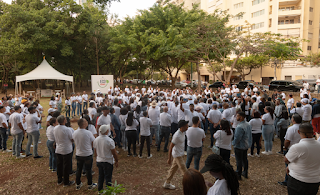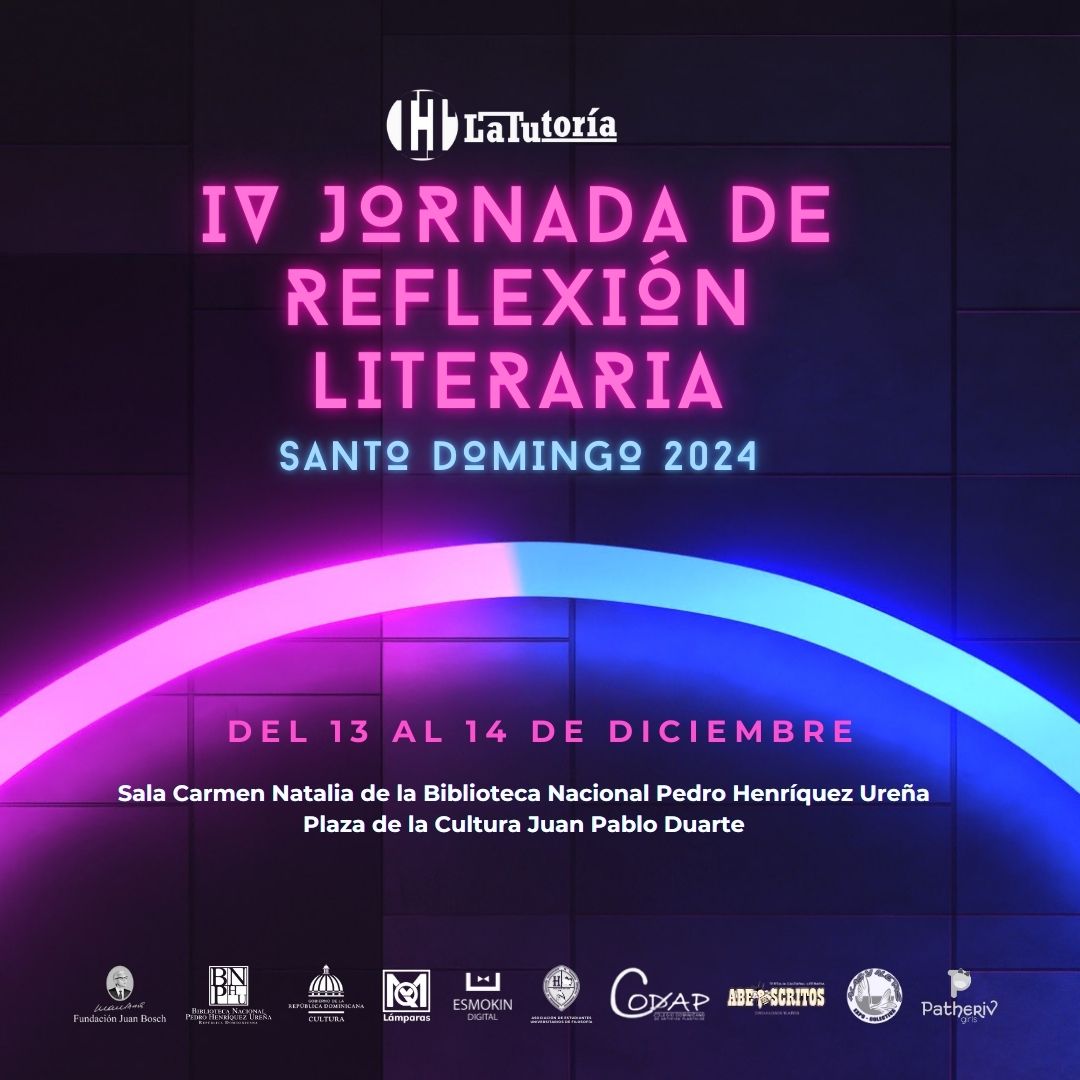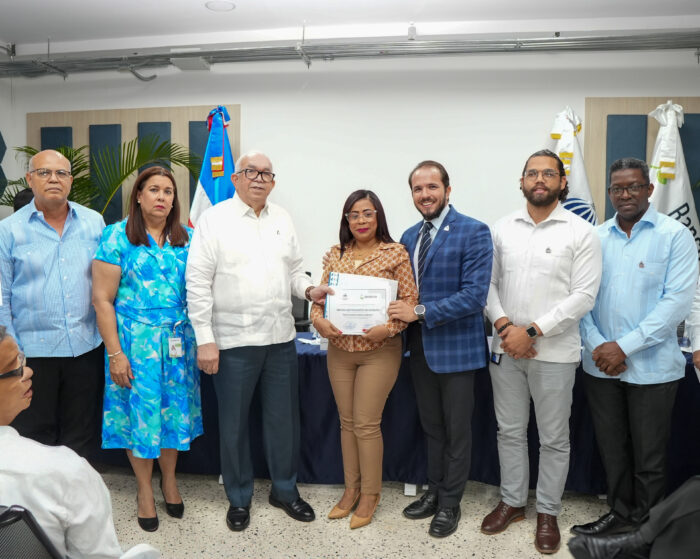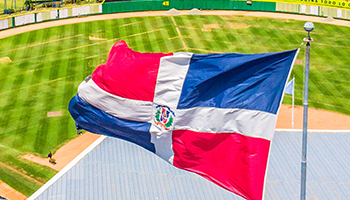Latin Ex-Presidents Unite to Discuss Public Leadership and Latin America’s Critical Role in the World’s Sustainable Development
 | Latin Ex-Presidents Unite to Discuss Public Leadership and Latin America’s Critical Role in the World’s Sustainable Development T he former President of the Dominican Republic and honorary President of Global Foundation for Democracy and Development (GFDD) and its sister organization in the Dominican Republic, Fundación Global Democracia y Desarrollo (FUNGLODE), Dr. Leonel Fernández, participated in an Inter-American seminar on public leadership, together with a large group of former Latin American presidents and senior officials from the State Department of the United States of America, as well as representatives of cooperation agencies, academics and entrepreneurs. The event took place in the auditorium of the Enrique Iglesias Convention Center at the Inter-American Development Bank (IDB), in Washington, the capital of the United States. The high level meeting was organized by the Global Center for Development and Democracy (CGDD), which is chaired by the former President of Peru, Alejandro Toledo, and is part of the activities assigned to the Latin American Institute of Leadership and Public Administration (ILLGP), for its acronym in Spanish. The objective of the seminar was to promote the exchange of points of view and to build consensus among the key organizations providing training of excellence for the emerging public leaders and public policy enforcers in Latin America. Important issues addressed at the seminar encompassed the current investment environment in Latin America for US companies and training of Latin American leaders and public sector administrators. The opening speech was delivered by Gustavo Arnavat, IDB Executive Director, and Barry Featherman, Executive Director of the Global Center for Development and Democracy, followed by the presentation of the former President of Peru and GCDD President, Alejandro Toledo, who discussed the projections for Latin America by the year 2050. Central to his the opening discussion by former Head of State, Toledo, was the amazing synergy of human capital, presence of natural resources and a legal stability in Latin America which, if well managed, could help eliminate the countries’ poverty. Taking a positive view of the region, the former head of state remarked that Latin America has “learnt from its mistakes’’ of recent history, and has what it needs to make the jump in a developed world economy, and to play an important role in the world sustainable development. Given a high level of economic growth in Latin America over the past decade, the former Peruvian President sited rich natural resources; 50% of the world copper reserves, 47% of the world silver, 18% of the gold and 37% of the world fresh water resources. These realities, coupled with a highly trained human capital, as well as a democratic process, generates an unprecedented synergy providing 600 million people across the continent with an historic opportunity to step in to the developed world economy. Toledo’s speech was followed by the panel discussion, in which he participated. The panel featured former Presidents Leonel Fernández, of the Dominican Republic, Jorge Quiroga and Carlos Mesa of Bolivia, Vicente Fox of Mexico, Nicolás Ardito Barletta of Panama, and Vinicio Cerezo of Guatemala. The former president of the Dominican Republic, Dr. Leonel Fernández, took a lead in the discussions saying that, after a time of relative neglect, the United States has again started to turn its gaze toward the Latin American and the Caribbean regions, a gesture that he considers positive for both regions. Dr. Fernández explained that until recently, as part of their fight against terrorism, the United States paid more attention to the Middle East and other regions, which caused them to pay little attention to Latin America and the Caribbean. “But President (Barack) Obama has begun to change that agenda and has increased the U.S. attention toward the Latin American and the Caribbean regions,” he said, noting that this change in the approach has much to do with the image that Latin America has in today’s American society. He noted, however, that although the U.S. agenda for the region has focused on trade and investment, in recent years investment from other regions of the world in Latin America and the Caribbean has surpassed that from the United States, which is attributed to the emergence of a new architecture of the international system. To overcome this situation, Fernández stated that there must be a clear and defined agenda between the United States and Latin America, especially in regard to Mexico, Central America and the Caribbean. “I think that the focus should be on developing policies that benefit both the Latin American region as well as the United States,” stated Fernández. He also highlighted the importance of the Latino community in the United States, and, as an example, he pointed to the influence it exerted on the results of the recent elections that took place in that country, where 75 percent of the Latino vote favored the re-election of President Obama.”Latinos had a great influence in deciding the results of the elections here in the United States, and we see how that importance is growing,” said Fernández, after stating that this is why today the Republican Party is trying to achieve a closer relationship with the Latino population in preparation of the future electoral processes. Likewise, the former president highlighted as an important issue for the Latin American region, to have in Pope Francis, the maximum figure in the Catholic Church worldwide, a spiritual leader of great influence. Gustavo Arnavat, IDB Executive Director, Patrick Kilbride, Senior Director for the Americas at the U.S. Chamber of Commerce and Francisco Sánchez, Undersecretary for International Trade at the US Department of Commerce, were also in attendance. The discussions of the panel mainly focused on the Latin American Institute of Leadership and Public Administration and the role of multilateral organizations in the region. . The meeting is expected to encourage a set of agreements for joint action between these agencies providing training, in order to improve the coverage and impact of the available training opportunities. About the Global Center for Development and Democracy Established under a resolution adopted during the VI Summit of Former Presidents of Latin America and the Caribbean, held in Lima on September 11, 2011, the Global Center for Development and Democracy promotes sustainable democracies and economic self-sufficiency in developing countries by building a better understanding of poverty, social inequality, and historical imbalances in disadvantaged regions, and by crafting and implementing practical solutions to promote the well-being of individuals, particularly women, in economically disenfranchised communities throughout the world. Mission of the ILLGP The specific objective of the Latin American Institute of Leadership and Public Administration is to strengthen the capacity of the States to deliver tangible and measurable results for all Latin Americans in their respective countries and, especially, for the most underprivileged countries. The curriculum design aims to promote capacity building for political action and public administration, with special emphasis on the incentive for efficiency, integrity and democratic conviction, economic growth and an inclusive democracy. Link: http://www.cgdd.org
|

Related News
-

(Versión en español) Se unen para arborizar el Mirador Sur, en jornada "Ecohéroes"
-

(Versión en español) Emprendedores de Banco Adopem son reconocidos en los Premios BCIE
-

(Versión en español) Llega la IV Jornada de Reflexión Literaria Santo Domingo 2024
-

(Versión en español) Tecnificación de Riego certifica más de 400 colaboradores Banco Agrícola
-

Dominicanos en Grandes Ligas
Las ultimas noticias/novedades de lo que acontece con los Dominicanos en las Grandes Ligas durante toda la temporada 2019.






